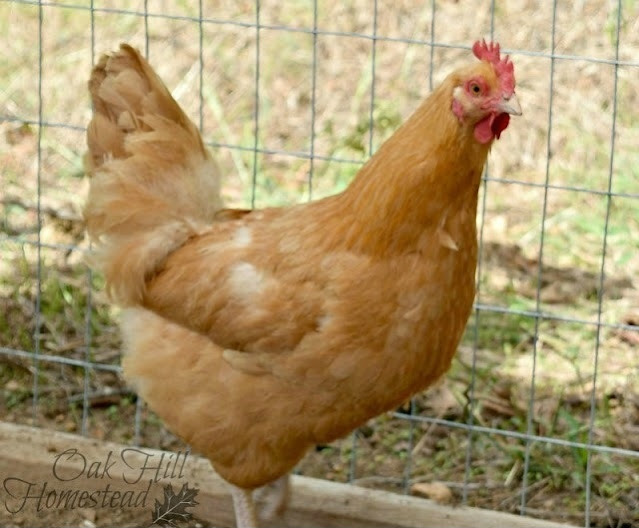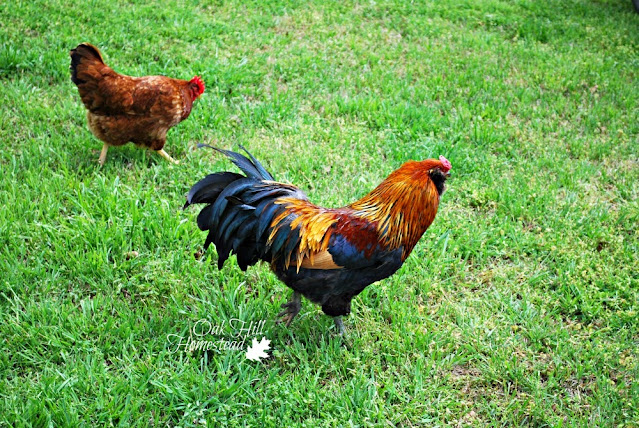Every chicken keeper has questions - especially in the beginning. This FAQ guide covers the essentials: laying age, lifespan, molting, winter care, feeding, and more. Whether you’re raising a small backyard flock or dreaming of colorful egg baskets, you’ll find the answers and encouragement you need here.
Updated September 2025
Beginner-friendly guide to chickens
Chickens are often called "gateway livestock," the first foray of many new homesteaders into raising live animals.
And why not? They are inexpensive to buy, to feed, and to house. They are entertaining and quite endearing.
They also mature quickly compared to larger animals, producing eggs at approximately 4-6 months of age. Cornish Cross meat birds are ready for the freezer at just 8-10 weeks of age.
This collection of chicken how-to posts will help you decide if keeping chickens is right for you and your family.
You'll learn about egg-laying chickens and meat birds, plus find a FAQs section at the bottom.
Why you should raise chickens
If you're thinking about adding chickens to your backyard or homestead, you'll love the many benefits they bring. From natural pest control to a more peaceful way of living, chickens are a rewarding and practical addition to any space.
In this Redfin article, The 11 Benefits of Having Chickens, I join fellow homesteaders and share what we love most about raising chickens - and why they might be the perfect fit for you too.
Raising egg-laying chickens
Are you ready to get started with chickens? You can purchase your chicks at your local feed store or order them online (here's how to navigate those hatchery websites and get exactly what you want), or you can buy "point-of-lay" pullets (old enough to begin laying eggs) or grown laying hens locally.
Be aware that a hen's productivity begins to drop after she is two years old. If you're buying adult hens, ask how old they are.
The following articles will help you get started on your chicken adventure:
Basic chicken-keeping advice
- How to order chicks from a hatchery
- Bringing chicks home from the post office
- Raising (brooding) baby chicks
- What your chicken coop must have
- How to save money on chicken feed
- Keeping your chickens happy when you can't let them free range
- Keep your chickens safe from predators
- How to keep your chickens cool in the summer
- Caring for your chickens in the winter
- Make a sliding door for your chicken coop
Raising chickens for meat
Many self-sufficient-minded folks raise chickens for meat as well as for eggs. While any breed of chicken can be eaten, many people choose to raise the white Cornish Cross chickens, a fast-growing, broad-breasted bird that is bred especially for the table.
We've done both. We've raised straight-run Black Australorps and Rhode Island Reds. When they were old enough, we kept thew pullets and took the rest to a local poultry processor.
There's a big difference between the meat breeds such as Cornish Rock cross and so-called "dual purpose" breeds, and you can read about my experiences and thoughts here: Comparing heritage breeds and meat birds and Filling the Freezer: Raising Cornish Cross chickens.
There are several things you should consider before you make the decision to raise meat birds. They may be fast-growing and they may be destined for the freezer, but they have specific needs and you need to evaluate whether or not it's a good project for you.
Here's what you need to know before raising Cornish Cross chickens for the freezer.
Learn what equipment you need to raise chickens including feeders and waterers, roosts and nest boxes, and more suggestions and tips to make your coop safe and healthy for your hens.
Visit my Amazon storefront for a complete list of chicken equipment, books and fun chicken-related items for your home.
If you're looking for plans to build a safe, secure chicken coop, look no further than Easy Coops chicken coop plans. You'll find free plans as well as paid plans with material lists, cutting lists and detailed instructions.
Your chicken questions, answered!
We all have questions, right? Here are the answers to some of the most frequently asked chicken questions. If your question still needs an answer, contact me!
Chicken FAQs
When will my chicks begin to lay eggs?
Most egg-laying breeds begin laying at about 4–6 months of age.
How long do chickens lay eggs?
The first year is a hen’s most productive. After two years, egg production slows down.
Do I need a rooster for hens to lay eggs?
No, hens lay eggs whether or not there’s a rooster. Without a rooster the eggs won’t be fertile, but unless you plan to hatch them, a rooster isn’t required.
How long do chickens live?
It varies. Many hens live 5–10 years if not lost to predators or processed for meat. My own hen “Nemo” lived to 9 years old and was still laying an egg or two each week.
What is a molt and does it happen to all chickens?
Molting usually happens in fall when days shorten. Chickens shed feathers and regrow new ones, often pausing egg production. All chickens molt, though young birds under a year may skip it their first season.
What helps chickens digest food better?
Provide grit or sand so chickens can grind food in their crops. If your coop has a dirt floor, they’ll usually find what they need. Otherwise, offer grit in a small container.
My chickens won’t eat oyster shells. What else can I give them?
Rinse and dry eggshells, bake them at low heat, crush finely, and offer free-choice. Eggshells are rich in calcium, just like oyster shells.
Do coops need extra heat in winter?
Usually not. Chickens huddle together for warmth and tolerate cold if the coop is dry and draft-free. Avoid heat lamps, which can be a fire hazard.
What breeds do well in cold or hot climates?
For cold climates, choose breeds with small combs (pea or rose combs) to prevent frostbite. Large-combed breeds are more prone to frostbite but do well in hot climates because their combs help with cooling.
Should I add light to the coop in winter?
You can, but I don’t. Supplemental light can boost egg production, but I prefer to let hens rest naturally. If you add light, use a safe, low-heat bulb rather than a heat lamp.
How can I keep chicken water from freezing in winter?
I’ve used black rubber pans in the past, but my favorite method is detailed in this post: How to care for your chickens in winter.
Why do my hens lay fewer eggs in winter or during molt?
Egg production naturally slows during hot summers, fall molts, and short winter days. In spring, production usually rebounds, and you can preserve surplus eggs for later.
How can I keep chickens cool in summer?
Offer frozen treats like watermelon or fruit-and-water “ice muffins.” More summer tips here: Keeping Chickens Cool in the Summer.
What’s your favorite breed of chicken?
Buff Orpingtons are my personal favorite - friendly, calm, and often broody. I also love colorful egg layers like Copper Marans, Easter Eggers, and Ameraucanas.
Can I grow food for my chickens?
Yes! Try a chicken garden with corn, millet, or other favorites. You can also sprout barley or oats into fodder, or share garden extras like overripe fruit, greens, and vegetables.
More resources:
Mary's Heirloom Seeds carries seeds for a chicken garden combo pack which includes corn, millet and other plants that chickens love.
When you're overrun with eggs in the spring you can preserve them for later in the year, using methods such as these 6 Ways to Preserve Eggs.
Check out these 13 Delicious Ways to Use a Surplus of Eggs too for more ways to use up those spring eggs.
Don't see your question here? Click here to contact me!

Kathi Rodgers is the gardener and writer behind Oak Hill Homestead (est. 2006) and the host of HOMEGROWN: Your Backyard Garden Podcast. With over 30 years of gardening experience in a variety of climates and soils, she helps new and aspiring gardeners grow healthy, organic food right in their own backyards.
A passionate advocate for simple, self-reliant living, Kathi is the author of multiple ebooks, a published magazine contributor, and shares practical advice with readers who want real-life solutions they can trust.
Kathi lives in Oklahoma, where she grows more cherry tomatoes than she can count and keeps a watchful eye on tornado season. A proud grandma and great-grandma, she believes that wisdom - like a bountiful garden harvest - should be shared.

















